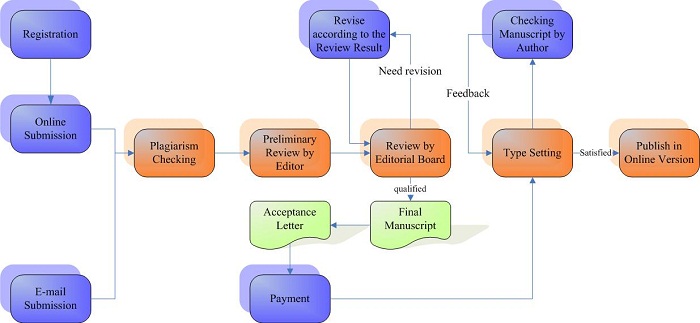Studies in English Language Teaching (SELT) is the official open access journal of Scholink. In order to give all researchers equal opportunity to share their ideas, SELT adopts double-blind peer-review. We would welcome scholars and researchers engaging in the related field to submit your manuscripts to SELT. Both of online submission and E-mail submission (selt@scholink.org) are acceptable. ------------------------------------------------------------------------ The journal includes, but is not limited to the following fields:
Index/List
| Open access: Studies in English Language Teaching is available online to the reader "without financial, legal, or technical barriers other than those inseparable from gaining access to the internet itself." Peer review: Studies in English Language Teaching takes peer review policy. Peer review is the evaluation of work by one or more people of similar competence to the producers of the work (peers).
|
Journal Publishing Flowchart

Announcements
Call for Papers for Vol. 14, No. 1, March 2026 |
|
We are calling for submission of papers for Vol. 14, No. 1, March 2026. Submission deadline: February 15th. All submitted articles should be original and must not be under consideration for publication elsewhere. Please submit your manuscripts online. You may also e-mail submissions to selt@scholink.org |
|
| Posted: 2025-12-08 | |
| More Announcements... |
Vol 14, No 1 (2026)
Table of Contents
Articles
|
Anni Zhong
|
p1
|
|
Linda Bradley, Kyria Rebeca Finardi
|
p10
|
|
Qiao Wang, Bingwen Sun
|
p26
|
|
Jiaxin Bai
|
p35
|
|
Ed Conduit, Sally Dickinson, Patricia Warren and the class of 25/26
|
p54
|





